Rehousing Los Angeles
The Los Angeles Homeless Services Authority (LAHSA) is the lead agency responsible for the coordination of the Greater Los Angeles Homeless Count. The goal of the count is to identify important trends, key demographics, and location information to determine what’s working, what needs to be done, and where we’re falling short. This is the largest homeless census count in the nation and the data is used to educate practitioners, providers, politicians, and the public–all in service to end homelessness in Los Angeles. We partnered with LAHSA to provide message framing, help bring the numbers to life, and create a narrative of storytelling to give context and meaning to a real-time crisis.
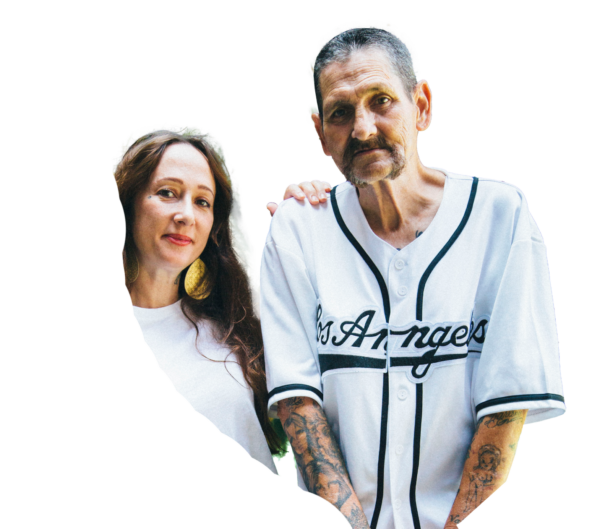
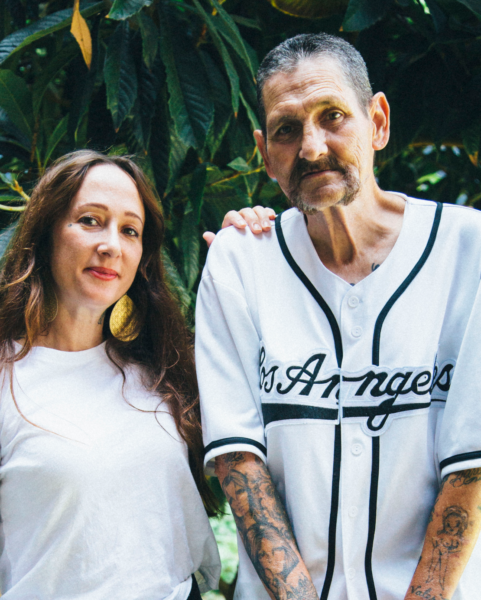
1 — The Challenge
Humanizing the Homeless Count
Data-centric information is by its nature impersonal, sterile, daunting, and lacks human context. We set out to ensure that we spent time highlighting the people behind the numbers–volunteers and frontline supporters with lived experience–to contextualize the data, bring humanity into frame and communicate in simple and relatable ways.
2 — The Brand
A warmer take on the identity
LAHSA has an established and reputable brand, but it lacks the warmth and humanity that this campaign called for. As a part of telling the stories of LA’s frontline support, we expanded the brand guidelines for a more approachable presentation.

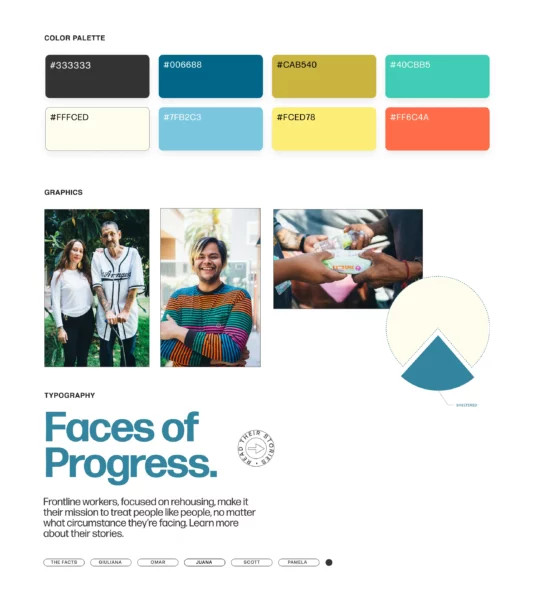
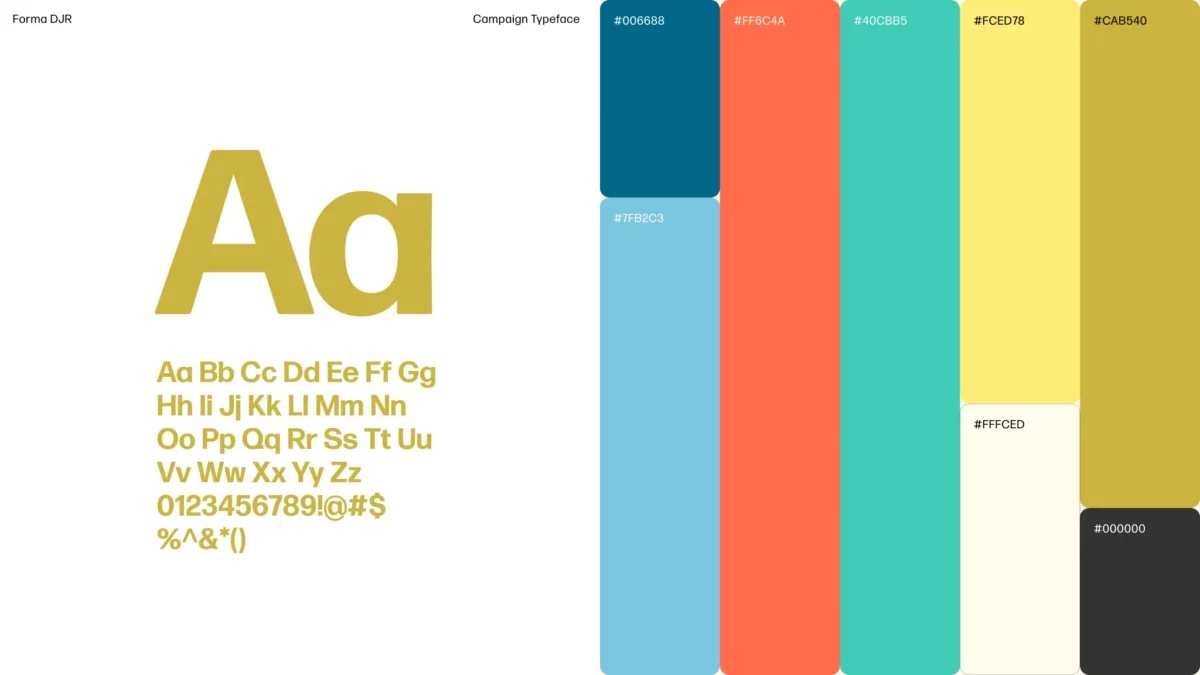
Modern colors and type — We were careful to honor LAHSA’s existing brand guide, while also adding a modern and approachable twist.
Portraits by Noè Montez — Humanizing the homeless crisis relied on sharing the stories of the humans—many with lived experience—who devote their every day to helping their neighbors get back on their feet. Noè Montez’s beautiful portraiture helped make that connection.
3 — The Website
Not heroism, hard work
The website worked to connect the homeless count to the progress and impact on the ground through diverse multimedia offerings, engaging photography, and simplified data visualizations. Connecting sterile numbers to stories of neighbors on the streets and colleagues in the field.
Stories of the movement — To help humanize the efforts, we told the stories of five folks with varying degrees of lived experience and roles in the crisis—pairing audio stories with pull quotes and photography for a truly immersive experience.
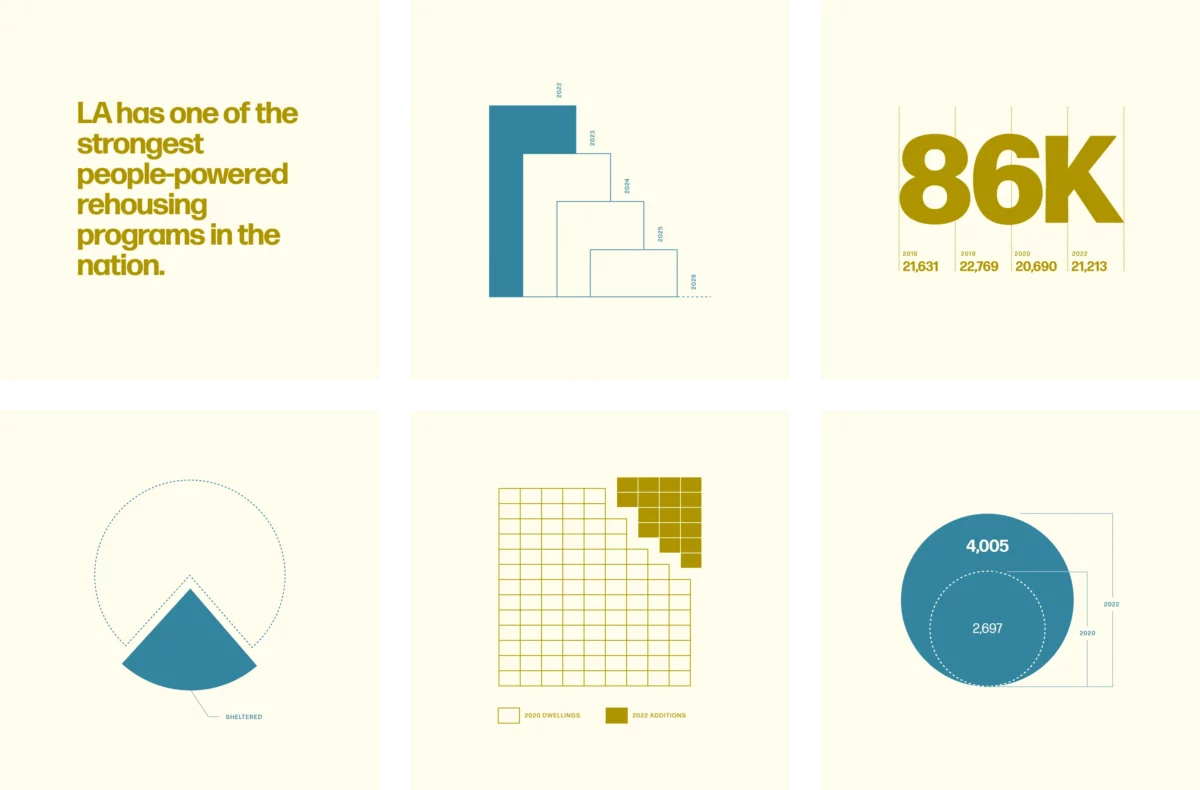
Simplifying complex data — By connecting the complex numbers being released with simplified visuals, we were able to make the report more approachable.
4 — The Campaign
A little help from our friends
We created a series of ads based on the personal stories of the five frontline service providers featured on the landing page to boost public understanding of the 2022 homeless count results. By utilizing LAHSA partner ad accounts including HOPICS, St. Joseph’s, and Union Station Homeless Services, we were able to engage in the community in an authentic way and use these trusted service providers as the messenger while also promoting the organizations themselves.
Bringing stories to life — Video ad content like Pamela’s path to advocacy helped viewers connect the work being done with the people doing it, while also driving them to learn more on the website.
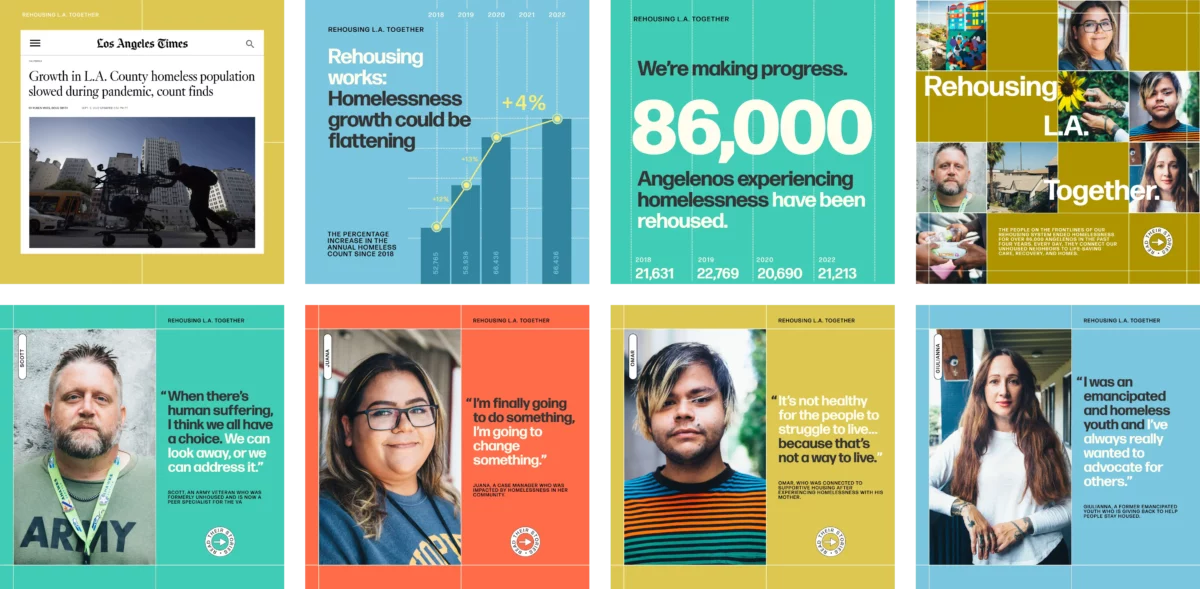
Digital ads — Balancing story and data, we assembled an ad campaign that was both informative and optimistic.
5 — The Impact
Changing the narrative
The primary objective of the campaign was to change the data-centric narrative around the homeless count by driving traffic to the Homeless Count 2022 Report landing page, resulting in increased education on the meaning behind the statistics and the rehousing system in general.
Through our robust ad campaign, we reached nearly one million people in Los Angeles at a critical moment to emphasize progress and optimism over cynicism and apathy. And more than 5,000 people visited the site to learn about the efforts service providers are taking to help those experiencing homelessness.
Storytelling is a powerful tool, and we feel honored to have been trusted with raising up the people behind the point-in-time numbers.


























